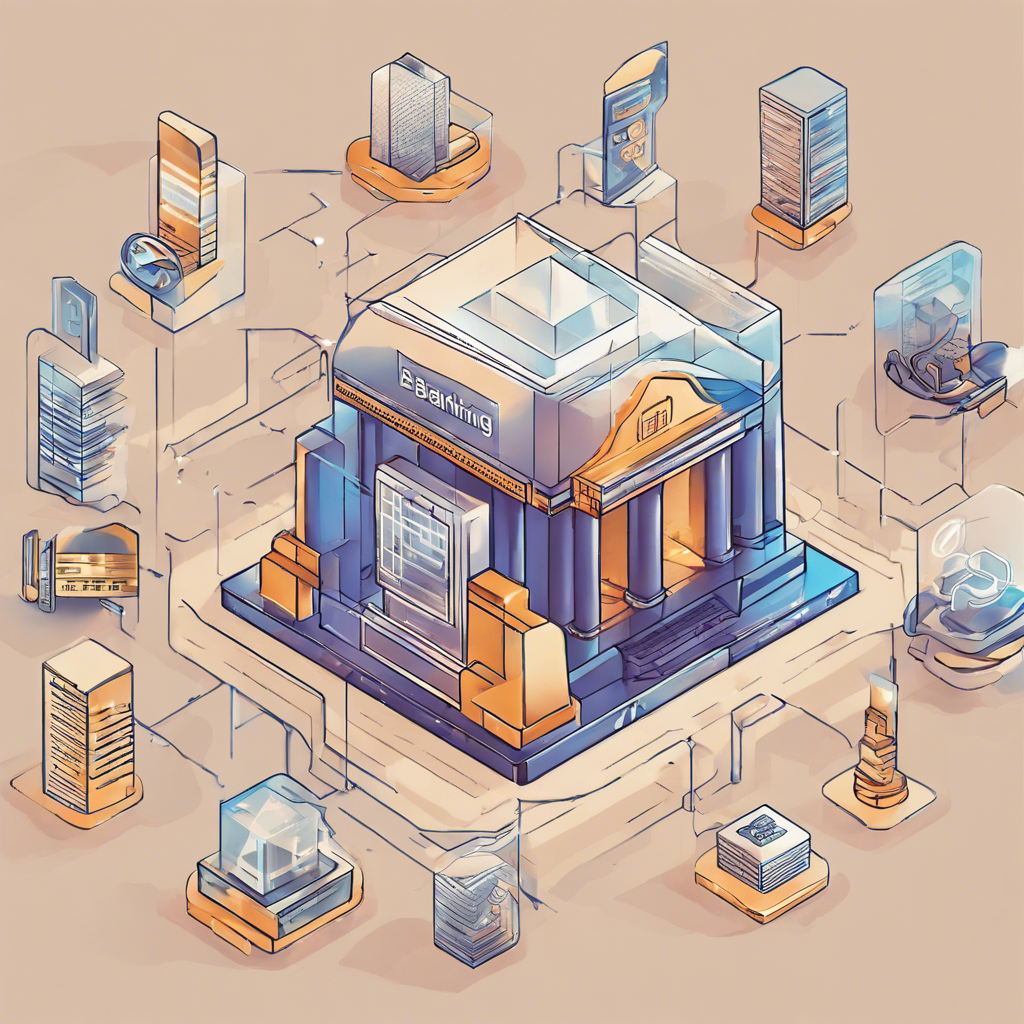The Future of Banking: How Blockchain Technology is Revolutionizing Tokenized Deposits and Wholesale Settlements

Banks Embrace Blockchain: Exploring the Potential of Tokenized Deposits and Wholesale Transactions
In a world where technology is advancing at an unprecedented pace, the banking industry is not one to be left behind. As traditional financial institutions grapple with the challenges posed by a rapidly evolving digital landscape, blockchain technology has emerged as a transformative force. With its decentralized and secure nature, blockchain is reshaping the way banks handle tokenized deposits and wholesale settlements, paving the way for a more efficient and transparent financial ecosystem.
1: The Rise of Tokenized Deposits
Tokenized deposits, also known as digital or crypto deposits, are gaining traction in the banking sector. These deposits are represented by digital tokens that are backed by real-world assets, such as fiat currency or commodities. By leveraging blockchain technology, banks can streamline the process of issuing and managing tokenized deposits, offering customers a more secure and convenient way to store and transfer their funds.
2: Wholesale Settlements on the Blockchain
Wholesale settlements, which involve large-value transactions between banks or financial institutions, have traditionally been complex and time-consuming processes. However, blockchain technology has the potential to revolutionize this space. By utilizing smart contracts and distributed ledger technology, banks can automate and streamline wholesale settlements, reducing costs and eliminating the need for intermediaries.
3: Pilots by Industry Giants
Leading banks such as Citi and J.P. Morgan Chase have already recognized the potential of blockchain technology in transforming tokenized deposits and wholesale settlements. These industry giants have embarked on pilot projects to explore the capabilities of blockchain in enhancing efficiency and security in global finance.
Citi, for instance, has been experimenting with blockchain-based tokenized deposits, aiming to provide customers with a seamless and secure way to manage their funds. By leveraging blockchain’s immutable nature, Citi can ensure the integrity of transactions and reduce the risk of fraud.
J.P. Morgan Chase, on the other hand, has focused on wholesale settlements using blockchain technology. Through its Interbank Information Network (IIN), the bank aims to enable instantaneous cross-border transactions, eliminating the delays and complexities associated with traditional settlement processes. This pilot project has demonstrated the potential for blockchain to revolutionize the global financial system.
4: Regulatory Considerations
While blockchain technology holds great promise for the banking industry, regulatory considerations must be taken into account. As the technology evolves, regulators must adapt to ensure the security and stability of the financial system. In the United States, the issue of Central Bank Digital Currency (CBDC) remains a topic of debate. While a CBDC may not be an immediate priority, the potential regulation of private issuers at the federal or state levels could provide a framework for the adoption of blockchain-based solutions in the banking sector.
5: The Future of Blockchain in Banking
As banks continue to experiment with blockchain technology, the future of tokenized deposits and wholesale settlements looks promising. The potential for instantaneous cross-border transactions and the automation of complex settlement processes offer a glimpse into a more efficient and transparent financial ecosystem. However, challenges such as scalability, interoperability, and regulatory frameworks must be addressed to fully realize the transformative power of blockchain in banking.
Conclusion:
Blockchain technology is revolutionizing the way banks handle tokenized deposits and wholesale settlements. With industry giants like Citi and J.P. Morgan Chase leading the way, the potential for instantaneous cross-border transactions and streamlined settlement processes is becoming a reality. While regulatory considerations and technological challenges remain, the future of blockchain in banking looks promising. As the global financial ecosystem continues to evolve, blockchain technology will undoubtedly play a crucial role in reshaping the industry for years to come.

